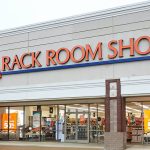A grassroots group of more than 300 online businesses, including several retailers, launched the eMainStreet Alliance to oppose the Marketplace Fairness Act (MFA). The Alliance asserts that the MFA unfairly burdens their businesses and subjects them to overwhelming audit risk.
If this bill passes, our livelihoods are at risk, said Alliance member McKane Davis of Scrapbook.com.
The eMainStreet Alliance has researched the bill, calculated the costs and assessed the effects of the MFA on their businesses. They have identified several consequences of the law that they feel represent unfair targeting of their small businesses:
- They will pay between $20,000 and $300,000 in MFA compliance costs in the first year alone. (Figures based on actual quotes from reputable software vendors and other direct costs that members will incur.)
- The laws complexity will overwhelm them, subjecting them to rules in more than 9,600 tax venues.
- The bill will drastically increase their audit risk and expose them to audits in 46 states. They will be audited by states where they have no physical presence, no political representation, and no right to vote. They feel that they are being denied due process and they highlight that some states can pierce the corporate veil and seize their personal possessions.
They assert that their online businesses already experience significant disadvantages in the marketplace and that the MFA will put many of them out of business.
The group notes that a January 2013 report from PwC shows that only 2 percent of the 10,000 surveyed consumers had ever researched products in-store and then shopped online. However, 23 percent had done the opposite and went online to research before buying in-store.
The group asserts that it is not at odds with true Main Street physical retailers and considers them allies.
The group asserts that it is not at odds with true Main Street physical retailers and considers them allies.
We both struggle to compete with big retailers who sell products below cost, engage in price wars, and use leverage, lobbyists, and political expenditures to get special favors from government, said Davis.
According to Congresss former chairman of the Advisory Commission on Electronic Commerce, in 2012 big-box retailers accounted for more than 83 percent of online sales. Their online market-share is increasing and if the MFA passes, their dominance will accelerate.















